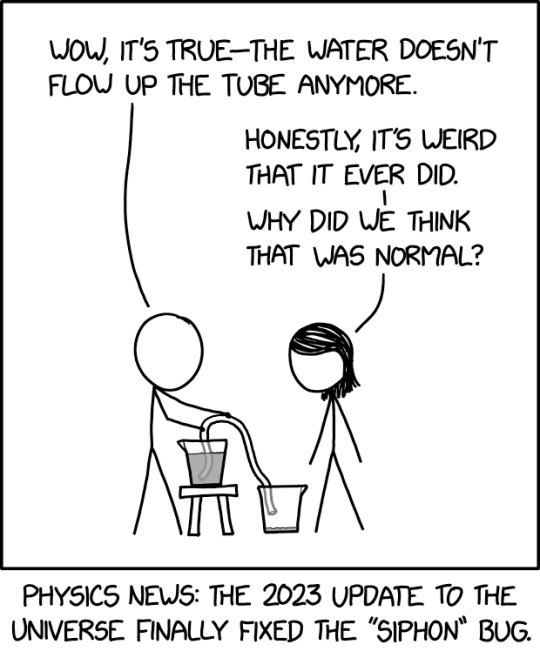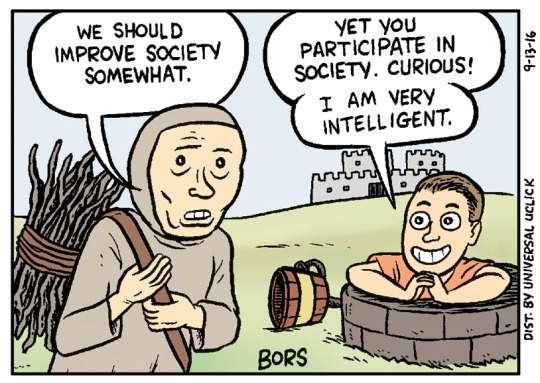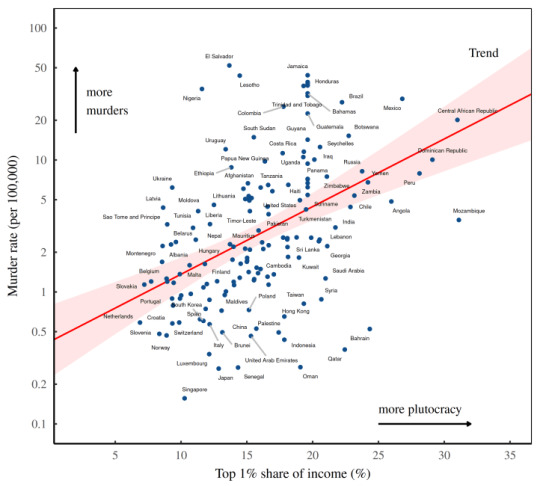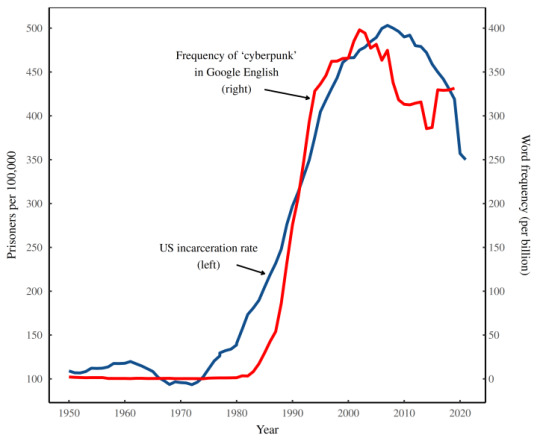#fog party
Photo


Kel-Mei! She's gone through a lot of changes. She's an NPC I created as a part of my DND character’s backstory for my PC Washu. Left: original concept piece, Right: How she looks now!
Yes, she went from Dragonborn to Dragon! (So did Washu. It’s a long story.)
#artists on tumblr#digital art#dungeons and dragons#dnd#dnd 5e#dungeons and dragons 5e#dragon#dragonborn#oc#my ocs#friend's ocs#technically.#kel-mei caseus#fog party#faire
27 notes
·
View notes
Text

HAPPY NEW YEARS!!!!
-from dj man himself <3
#djmm#dj#fnaf security breach#party in the west arcade#draws my headcannon of dj#LMAOO#him and his fog mouth#WHAT A CUTIE#I’LL SMOOCH HIM#omg 2024#my New Year’s resolution is#dawg idk#love you all#be safe
243 notes
·
View notes
Text








At the table: scenes from Soviet cartoons
#а мы тут плюшками балуемся#soviet cartoons#tea party#tea time#samovar#animation#fav#hedgehog in the fog
299 notes
·
View notes
Text


Hate, lesser god of Nehwon, "manifests itself as a thick grey fog with a few red orbs resembling eyes in the density. This fog is able to control up to 6 beings (as in a mass charm spell) or manipulate up to 6 weapons in its tentacles as a set of 6th level fighters. The manifestation of the god must be generated at night by a high priest of at least the 10th level and 100 worshipers. The fog will appear from the worshipers and is able to travel a distance of 5 miles. Its only function is to do harm." (Jennell Jaquays and Jeff Dee, AD&D Deities & Demigods by Jim Ward and Rob Kuntz, TSR, 1980)
#D&D#Dungeons & Dragons#Jennell Jaquays#Jeff Dee#Deities & Demigods#AD&D#Nehwon#Nehwon Mythos#Fritz Leiber#Fafhrd and the Gray Mouser#dnd#Hate#deity#god#fantasy#old time religion#1980s#fog#adventuring party#Dungeons and Dragons#TSR#Jim Ward#James M Ward#Rob Kuntz#Robert J Kuntz
231 notes
·
View notes
Text

Obligatory Family HC
Domestic DigPavPedia with their 7 kids and 5 wolves dogs /e heart emoji
#reverse 1999#r1999#reverse 1999 pavia#reverse 1999 diggers#reverse 1999 horropedia#digpavpedia#reverse 1999 eagle#reverse 1999 balloon party#reverse 1999 cristallo#reverse 1999 Oliver fog#reverse 1999 poltergeist#reverse 1999 lisa and louise
30 notes
·
View notes
Note
how did u choose your username?
oh, this is a fun one!! i think i considered being swordtold at first, for that very ancient myth vibe of the sword being this narrative tool for adventure and structure and physical time, the parable being passed down through the centuries until it meddles into modern day rhetoric and ideology – a kind of fantastical tool, a spark of magic, of possibility.
i like the arc of the story of a place being physical / having it be held by time and hand alike, wearing with the years and having it become something different to each holder, each reader, each experience fantastical and individual.
having that kind of physicality to it; swordheld is the action of taking up and holding the sword yourself, choosing your own narrative, leading your own story. self-identity has always been something i struggle with (a novel concept i know, i know), so it felt right for this blog, since most of my older blogs before this one have been just me silently reblogging and never really posting anything myself, and i wanted this to be the change to that.
i've always had trouble wranging my social anxiety, esp. on the internet, and previously thought that keeping my words to myself helped keep the timeline cleaner, in a way, no messy thoughts for others to sort through, especially ones i believed no one would want to read anyway? but it never felt right, keeping myself apart from it all, esp. not in the way i so avidly enjoyed reading others' posts and additions, keeping their words close to my heart.
i wanted it to reflect that this was a space i was holding for myself? and i'm a little slow on the uptake sometimes, but this - this i think i got right. i love being here, on this blog, and the joy that it brings me. everyone else enjoying it too has been a wild ride that i never expected, and still surprises me, one that brings a little extra thrill to my heart whenever i think about it.
i had other urls that i liked, but i didn't want this blog to be tied directly to any of my fandom/story interests, since i wanted it to really just be a sort of archive of artistic inspiration and resource, like a little library or museum. i use them now as lil sideblogs of more niche interests now, which is rather lovely.
it hasn't always felt like it fit perfectly, the way that i'd like, but for some reason i can't think of really wanting to change it anytime soon. it feels mythic yet modern in a way that feels like puzzle pieces finally slotting into their place, something my own and inspirational to me, like a lantern i'm holding to make my way by. my own kind of light, if that makes sense – a star i know by name.
#q&a.#birdsong.#all of this is truly just a way to say: it's your blog! it's your party! do what you like if it makes you happy!! (and doesn't hurt anyone!#live your dreams!!!!!! do your own thing truly it is worth it. which feels silly and cheesy inspirational talk vibes but u kno. it's right#thank u for ur question tho !!! it's been so long that i don't really remember exactly what the beginning of it all was?#it wasn't always my url for this blog esp. in the beginning but i've forgotten what that was ghjk so sorry dear anon !#like little flashes of a story in my memory i have to make out / like steam or fog on a window pane. blurry and unclear?#but now it feels more intentional / almost like watercolor! something that mixes itself into a new thing; bright and bursting w/ it all.#i hope this answers ur question nicely all the same tho <3#i always on habit write out lantern as lanturn so this is an unintentional shout out to one of my fav pokemon love u lanturn !!#some of these things i truly do just write out bc i know it'll make me laugh later if i ever come back to it. lil joys for ur future self !#and that IS a reference to the dickinson poem ' i am out with lanterns looking for myself ' it is in my brain always ! ! thank u ! !
56 notes
·
View notes
Text
society if the duffers had gone through with their original plan to have mike go to the upside down in s1 to find will

#byler#it's enough for me to know that he WOULD but i still would have liked to see it........ but i guess there's still s5..... sniffles n cries#when will's ankle gets caught in a vine n vecna goes YOINK n u just see mike's eyes go crazy wide as he starts sprinting after him faster#than he ever has tripping stumbling falling in a very mike fashion but he keeps going n he doesn't make it in time but it doesn't matter#it doesn't matter bc he's NOT going to lose will again he's NOT going to lose him on HIS watch a-fucking-gain he won't he CAN'T#and maybe it's a party affair so he looks back at lucas n dustin who are almost there and they're screaming after#him BECAUSE MIKE WAIT STOP MIKE WE DON'T HAVE THE RIGHT WEAPONS but mike just furrows his brow and goes in#bc he's the heart he's the paladin he's going to lead them and he's going to save will because will needs him but also he needs will#and. and um. well. then i fucking die of course#OR COULD U IMAGINE IF will goes on a solo mission and he thinks he's managed to sneak away but mike pops up like 'what are you doing? 🤨'#bc he always sees will and he always knows when something is up and it's a crazy plan but they did say crazy together and that they'd be a#team no matter what and that they would kill vecna so liek. do u see what im saying are u seeing my visions are u feeling my insanity rn .#they get surrounded or trapped somewhere and will casts fog cloud n saves the party like he did in a previous campaign. etc etc#dustin is their bard who has snacks n keeps things lighthearted mike leads the way n will is at his side n lucas is their eyes n ears n it'#almost like one of their campaigns bc the show started with that and those were their roles when will was missing and now it'll end#like that and so on n so forth. nods mhm mhm#takes deep breath ok back 2 studying i go byeeee
335 notes
·
View notes
Text









self-indulgent sachiko shinozaki stimboard with themes of blood, scissors, and ghostcore!
please don't tag as kin/me/id!

🪦 🕯 🪦
🕯 🪦 🕯
🪦 🕯 🪦


#[🧪] ⋮ mine .ᐟ#[🧪] ⋮ self-indulgent .ᐟ#stim#stimboard#stimblr#corpse party#sachiko shinozaki#blood tw#blood stim#scissors stim#ghost stim#candle stim#fog stim#proship#proship safe#proship please interact#proshippers please interact#profic#anti anti#anti harassment#anti censorship
15 notes
·
View notes
Text
my current mood is joey batey singing the lyrics, “because you make me weep when i’m just tryna watch the office…”
“…with my yogurt.”
#fog thoughts#i partied too hard last night and i woke up sick so now i’m listening to TAD and eating ice cream#joey batey#the amazing devil#madeleine hyland
85 notes
·
View notes
Text
you guys know a lot of info abt me from my random rants but here's a good one: did you guys know i'm scared of balloons
#when kids have them and they're playing with them and squishing them i die a little#i'm very afraid of loud noises in general. balloons fireworks thunder etc etc 😭😭#the good thing! ever since leaving high-school i've never been around balloons anymore (for parties and events)#and where i live now people don't blow fireworks#and i have never seen a thunderstorm here either. it's always light rain or fog#so that's nice i am normal now 😭😆😆#i hadn't even thought about it in a while#i just remembered because someone on tiktok said they had globophobia and the comments were making fun of her. it's nawt funny it's#embarrassing 😔😔😔 we can't help it
11 notes
·
View notes
Text
Revenge of the Linkdumps

Next Saturday (May 20), I’ll be at the GAITHERSBURG Book Festival with my novel Red Team Blues; then on May 22, I’m keynoting Public Knowledge’s Emerging Tech conference in DC.
On May 23, I’ll be in TORONTO for a book launch that’s part of WEPFest, a benefit for the West End Phoenix, onstage with Dave Bidini (The Rheostatics), Ron Diebert (Citizen Lab) and the whistleblower Dr Nancy Olivieri.

If you’ve followed my work for a long time, you’ve watched me transition from a “linkblogger” who posts 5–15 short hits every day to an “essay-blogger” who posts 5–7 long articles/week. I’m loving the new mode of working, but returning to linkblogging is also intensely, unexpectedly gratifying:
https://pluralistic.net/2023/05/02/wunderkammer/#jubillee
If you’d like an essay-formatted version of this post to read or share, here’s a link to it on pluralistic.net, my surveillance-free, ad-free, tracker-free blog:
https://pluralistic.net/2023/05/13/four-bar-linkage/#linkspittle

[Image ID XKCD #2775: Siphon. Man: ‘Wow, it’s true — the water doesn’t flow up the tube anymore.’ Woman: ‘Honestly, it’s weird that it ever did. Why did we ever think it was normal?’ Caption: ‘Physics news: the 2023 update to the universe finally fixed the ‘siphon’ bug.’]
My last foray into linkblogging was so great — and my backlog of links is already so large — that I’m doing another one.
Link the first: “Siphon,” XKCD’s delightful, whimsical “physics-how-the-fuck-does-it-work” one-shot (visit the link, the tooltip is great):
https://xkcd.com/2775/

[Image ID: A Dutch safety poster by Herman Heyenbrock, warning about the hazards of careless table-saw use, featuring a hand with two amputated fingers.]
Next is “Hoogspanning,” 50 Watts’s collection of vintage Dutch workplace safety posters, which exhibit that admirable Dutch frankness to a degree that one could mistake for parody, but they’re 100% real, and amazing:
https://50watts.com/Hoogspanning-More-Dutch-Safety-Posters
They’re ganked from Geheugenvannederland (“Memory of the Netherlands”):
https://geheugenvannederland.nl/
While some come from the 1970s, others date back to the 1920s and are likely public domain. I’ve salted several away in my stock art folder for use in future collages.
All right, now that the fun stuff is out of the way, let’s get down to some crunch tech-policy. To ease us in, I’ve got a game for you to play: “Moderator Mayhem,” the latest edu-game from Techdirt:
https://www.techdirt.com/2023/05/11/moderator-mayhem-a-mobile-game-to-see-how-well-you-can-handle-content-moderation/
Moderator Mayhem started life as a card-game that Mike Masnick used to teach policy wonks about the real-world issues with content moderation. You play a mod who has to evaluate content moderation flags from users while a timer ticks down. As you race to evaluate users’ posts for policy compliance, you’re continuously interrupted. Sometimes, it’s “helpful” suggestions from the company’s AI that wants you to look at the posts it flagged. Sometimes, it’s your boss who wants you to do a trendy “visioning” exercise or warning you about a “sensitivity.” Often, it’s angry ref-working from users who want you to re-consider your calls.
The card-game version is legendary but required a lot of organization to play, and the web version (which is better in a mobile browser, thanks to a swipe-left/right mechanic) is something you can pick up in seconds. This isn’t merely highly recommended; I think that one could legitimately refuse to discuss content moderation policies and critiques with anyone who hasn’t played it;
https://moderatormayhem.engine.is/
Or maybe that’s too harsh. After all, tech policy is a game that everyone can play — and more importantly, it’s a game everyone should play. The contours of tech regulation and implementation touch rub up against nearly every aspect of our lives, and part of the reason it’s such a mess is that the field has been gatekept to shit, turned into a three-way fight between technologists, policy wonks and economists.
Without other voices in the debate, we’re doomed to end up with solutions that satisfy the rarified needs and views of those three groups, a situation that is likely to dissatisfy everyone else.
However. However. The problem is that our technology is nowhere near advanced enough to be indistinguishable from magic (RIP, Sir Arthur). There’s plenty of things everyone wishes tech could do, but it can’t, and wanting it badly isnlt enough. Merely shouting “nerd harder!” at technologists won’t actually get you what you want. And while I’m rattling off cliches: a little knowledge is a dangerous thing.
Which brings me to Ashton Kutcher. Yes, that Ashton Kutcher. No, really. Kutcher has taken up the admirable, essential cause of fighting Child Sex Abuse Material (CSAM, which is better known as child pornography) online. This is a very, very important and noble cause, and it deserves all our support.
But there’s a problem, which is that Kutcher’s technical foundations are poor, and he has not improved them. Instead, he cites technologies that he has a demonstrably poor grasp upon to call for policies that turn out to be both ineffective at fighting exploitation and to inflict catastrophic collateral damage on vulnerable internet users.
Take sex trafficking. Kutcher and his organization, Thorn, were key to securing the passage of SESTA/FOSTA, a law that was supposed to fight online trafficking by making platforms jointly liable when they were used to facilitate trafficking:
https://www.engadget.com/2019-05-31-sex-lies-and-surveillance-fosta-privacy.html
At the time, Kutcher argued that deputizing platforms to understand and remove which user posts were part of a sex crime in progress would not inflict collateral damage. Somehow, if the platforms just nerded hard enough, they’d be able to remove sex trafficking posts without kicking off all consensual sex-workers.
Five years later, the verdict is in, and Kutcher was wrong. Sex workers have been deplatformed nearly everywhere, including from the places where workers traded “bad date” lists of abusive customers, which kept them safe from sexual violence, up to and including the risk of death. Street prostitution is way up, making the lives of sex workers far more dangerous, which has led to a resurgence of the odious institution of pimping, a “trade” that was on its way to vanishing altogether thanks to the power of the internet to let sex workers organize among themselves for protection:
https://aidsunited.org/fosta-sesta-and-its-impact-on-sex-workers/
On top of all that, SESTA/FOSTA has made it much harder for cops to hunt down and bust actual sex-traffickers, by forcing an activity that could once be found with a search-engine into underground forums that can’t be easily monitored:
https://www.techdirt.com/2018/07/09/more-police-admitting-that-fosta-sesta-has-made-it-much-more-difficult-to-catch-pimps-traffickers/
Wanting it badly isn’t enough. Technology is not indistinguishable from magic.
A little knowledge is a dangerous thing.
Kutcher, it seems, has learned nothing from SESTA/FOSTA. Now he’s campaigning to ban working cryptography, in the name of ending the spread of CSAM. In March, Kutcher addressed the EU over the “Chat Control” proposal, which, broadly speaking, is a ban on end-to-end encrypter messaging (E2EE):
https://www.brusselstimes.com/417985/ashton-kutcher-spotted-in-the-european-parliament-promoting-childrens-rights
Now, banning E2EE would be a catastrophe. Not only is E2EE necessary to protect people from griefers, stalkers, corporate snoops, mafiosi, etc, but E2EE is the only thing standing between the world’s dictators and total surveillance of every digital communication. Even tiny flaws in E2EE can have grave human rights concerns. For example, a subtle bug in Whatsapp was used by NSO Group to create a cyberweapon called Pegasus that the Saudi royals used to lure Jamal Khashoggi to his grisly murder:
https://www.theguardian.com/world/2021/jul/18/nso-spyware-used-to-target-family-of-jamal-khashoggi-leaked-data-shows-saudis-pegasus
Because the collateral damage from an E2EE ban would be so far-ranging (beyond harms to sex workers, whose safety is routinely disregarded by policy-makers), people like Kutcher can’t propose an outright ban on E2EE. Instead, they have to offer some explanation for how the privacy, safety and human rights benefits of E2EE can be respected even as encryption is broken to hunt for CSAM.
Kutcher’s answer is something called “fully homomorphic encryption” (FHE) which is a theoretical — and enormously cool — way to allow for computing work to be done on encrypted data without decrypting it. When and if FHE are ready for primetime, it will be a revolution in our ability to securely collaborate with one another.
But FHE is nowhere near the state where it could do what Kutcher claims. It just isn’t, and once again, wanting it badly is not enough. Writing on his blog, the eminent cryptographer Matt Green delivers a master-class in what FHE is, what it could do, and what it can’t do (yet):
https://blog.cryptographyengineering.com/2023/05/11/on-ashton-kutcher-and-secure-multi-party-computation/
As it happens, Green also gave testimony to the EU, but he doesn’t confine his public advocacy work to august parliamentarians. Green wants all of us to understand cryptography (“I think cryptography is amazing and I want everyone talking about it all the time”). Rather than barking “stay in your lane” at the likes of Kutcher, Green has produced an outstanding, easily grasped explanation of FHE and the closely related concept of multi-party communication (MPC).
This is important work, and it exemplifies the difference between simplifying and being simplistic. Good science communicators do the former. Bad science communicators do the latter.
While Kutcher is presumably being simplistic because he lacks the technical depth to understand what he doesn’t understand, technically skilled people are perfectly capable of being simplistic, when it suits their economic, political or ideological goals.
One such person is Geoffrey Hinton, the so-called “father of AI,” who resigned from Google last week, citing the existential risks of “runaway AI” becoming superintelligent and turning on its human inventors. Hinton joins a group of powerful, wealthy people who have made a lot of noise about the existential risk of AI, while saying little or nothing about the ongoing risks of AI to people with disabilities, poor people, prisoners, workers, and other groups who are already being abused by automated decision-making and oversight systems.
Hinton’s nonsense is superbly stripped bare by Meredith Whittaker, the former Google worker organizer turned president of Signal, in a Fast Company interview with Wilfred Chan:
https://www.fastcompany.com/90892235/researcher-meredith-whittaker-says-ais-biggest-risk-isnt-consciousness-its-the-corporations-that-control-them
The whole thing is incredible, but there’s a few sections I want to call to your attention here, quoting Whittaker verbatim, because she expresses herself so beautifully (sci-comms done right is a joy to behold):
I think it’s stunning that someone would say that the harms [from AI] that are happening now — which are felt most acutely by people who have been historically minoritized: Black people, women, disabled people, precarious workers, et cetera — that those harms aren’t existential.
What I hear in that is, “Those aren’t existential to me. I have millions of dollars, I am invested in many, many AI startups, and none of this affects my existence. But what could affect my existence is if a sci-fi fantasy came to life and AI were actually super intelligent, and suddenly men like me would not be the most powerful entities in the world, and that would affect my business.”
I think we need to dig into what is happening here, which is that, when faced with a system that presents itself as a listening, eager interlocutor that’s hearing us and responding to us, that we seem to fall into a kind of trance in relation to these systems, and almost counterfactually engage in some kind of wish fulfillment: thinking that they’re human, and there’s someone there listening to us. It’s like when you’re a kid, and you’re telling ghost stories, something with a lot of emotional weight, and suddenly everybody is terrified and reacting to it. And it becomes hard to disbelieve.
Whittaker sets such a high bar for tech criticism. I had her clarity in mind in 2021, when I collaborated with EFF’s Bennett Cyphers on “Privacy Without Monopoly,” our white-paper addressing the claim that we need giant tech platforms to protect us from the privacy invasions of smaller “rogue” operators:
https://www.eff.org/wp/interoperability-and-privacy
This is a claim that is most often raised in relation to Apple and its App Store model, which is claimed to be a bulwark against commercial surveillance. That claim has some validity: after all, when Apple added a one-click surveillance opt-out to Ios, its mobile OS. 96% of users clicked the “don’t spy on me” button. Those clicks cost Facebook $10b in just the following year. You love to see it.
But Apple is a gamekeeper-turned-poacher. Even as it was blocking Facebook’s surveillance, it was conducting its own, nearly identical, horrifyingly intrusive surveillance of every Ios user, for the same purpose as Facebook (ad targeting) and lying about it:
https://pluralistic.net/2022/11/14/luxury-surveillance/#liar-liar
Bennett and I couldn’t have asked for a better example of the point we make in “Privacy Without Monopoly”: the thing that stops companies from spying on you isn’t their moral character, it’s the threat of competition and/or regulation. If you can modify your device in ways that cost its manufacturer money (say, by installing an alternative app store), then the manufacturer has to earn your business every day.
That might actually make them better — and if it doesn’t, you can switch. The right way to make sure the stuff you install on your devices respects your privacy is by passing privacy laws — not by hoping that Tim Apple decides you deserve a private life.
Bennett and I followed up “Privacy Without Monopoly” with an appendix that focused on a territory where there is a privacy law: the EU, whose (patchily enforced) General Data Protection Regulation (GDPR) is the kind of privacy law that we call for in the original paper. In that appendix, we addressed the issues of GDPR enforcement:
https://www.eff.org/wp/interoperability-and-privacy#gdpr
More importantly, we addressed the claim that the GDPR crushed competition, by making it harder for smaller (and even sleazier) ad-tech platforms to compete with Google and Facebook. It’s true, but that’s OK: we want competition to see who can respect technology users’ rights — not competition to see who can violate those rights most efficiently:
https://www.eff.org/deeplinks/2021/06/gdpr-privacy-and-monopoly
Around the time Bennett and I published the EU appendix to our paper, I was contacted by the Indian Journal of Law and Technology to see whether I could write something on similar lines, focused on the situation in India. Well, it took two years, but we’ve finally published it: “Securing Privacy Without Monopoly In India: Juxtaposing Interoperability With Indian Data Protection”:
https://www.ijlt.in/post/securing-privacy-without-monopoly-in-india-juxtaposing-interoperability-with-indian-data-protection
The Indian case for interop incorporates the US and EU case, but with some fascinating wrinkles. First, there are the broad benefits of allowing technology adaptation by people who are often left out of the frame when tools and systems are designed. As the saying goes, “nothing about us without us” — the users of technology know more about their needs than any designer can hope to understand. That’s doubly true when designers are wealthy geeks in Silicon Valley and the users are poor people in the global south.
India, of course, has its own highly advanced domestic tech sector, who could be a source of extensive expertise in adapting technologies from US and other offshore tech giants for local needs. India also has a complex and highly contested privacy regime, which is in extreme flux between high court decisions, regulatory interventions, and legislation, both passed and pending.
Finally, there’s India’s long tradition of ingenious technological adaptations, locally called jugaad, roughly equivalent to the English “mend and make do.” While every culture has its own way of celebrating clever hacks, this kind of ingenuity is elevated to an art form in the global south: think of jua kali (Swahili), gambiarra (Brazilian Portuguese) and bricolage (France and its former colonies).
It took a long time to get this out, but I’m really happy with it, and I’m extremely grateful to my brilliant and hardworking research assistants from National Law School of India University: Dhruv Jain, Kshitij Goyal and Sarthak Wadhwa.
I don’t claim that any of the incarnations of the “Privacy Without Monopoly” paper rise to the clarity of the works of Green or Whittaker, but that’s okay, because I have another arrow in my quiver: fiction. For more than 20 years, I’ve written science fiction that tries to make legible and urgent the often dry and abstract concepts I address in my nonfiction.
One issue I’ve been grappling with for literally decades is the implications of “trusted computing,” a security model that uses a second, secure computer, embedded in your device, to observe and report on what your main computer is doing. There are lots of implications for this, both horrifying and amazing.
For example, having a second computer inside your device that watches it is a theoretically unbeatable way of catching malicious software, resolving the conundrum of malware: if you think your computer is infected and can’t be trusted, then how can you trust the antivirus software running on that computer.
Back in 2016, Andrew “bunnie” Huang and Edward Snowden released the “Introspection Engine,” a separate computer that you could install in an Iphone, which would tell you whether it was infected with spyware:
https://www.tjoe.org/pub/direct-radio-introspection/release/2
But while there are some really interesting positive applications for this kind of software, the negative ones — unbeatable DRM and tamper-proof bossware — are genuinely horrifying. My novella “Unauthorized Bread” digs into this, putting blood and sinew into an otherwise dry abstract and skeletal argument:
https://arstechnica.com/gaming/2020/01/unauthorized-bread-a-near-future-tale-of-refugees-and-sinister-iot-appliances/
Then there are applications that are somewhere in between, like “remote attestation” (when the secure computer signs a computer-readable description of what your computer is doing so that you can prove things about your computer and its operation to people who don’t trust you, but do trust that secure computer).
Remote attestation is the McGuffin of Red Team Blues, my latest novel, a crime-thriller about a cryptocurrency heist. The novel opens with the keys to a secure enclave — the gadget that signs the attestations in remote attestation — going missing.
When Matt Green reviewed Red Team Blues (his first book review!), he singled this out as a technically rigorous and significant plot point, because secure enclaves are designed so that they can’t be updated (if you can update an enclave, then you can update it with malicious software):
https://blog.cryptographyengineering.com/2023/04/24/book-review-red-team-blues/
This means that bugs in secure enclaves can last forever. Worse, if the keys for a secure enclave ever leak, then there’s no way to update all the secure enclaves out there in the world — millions or billions of them — to fix it.
Well, it’s happened.
The keys for the secure enclaves in Micro-Star International (AKA MSI) computers, a massive manufacturer of work and gaming PCs — have leaked and shown up on the “extortion portal” of a notorious crime gang:
https://arstechnica.com/information-technology/2023/05/leak-of-msi-uefi-signing-keys-stokes-concerns-of-doomsday-supply-chain-attack/
As a security expert quoted by Ars Technica explains, this is a “doomsday scenario.” That’s more or less how it plays in my novel. The big difference between the MSI leak and the hack in my book is that the MSI keys were just sitting on a server, connected to the internet, which wasn’t well-secured.
In Red Team Blues, I went to enormous lengths to imagine a fiendishly complex, incredibly secure scheme for hosting these keys, and then dreamt up a way that the bad guys could defeat it. I toyed with the idea of having the keys leak due to rank incompetence, but I decided that would be an “idiot plot” (“a plot that only works if the characters are idiots”). Turns out, idiot plots may make for bad fiction, but they’re happening around us all the time.
In my real life, I cross a lot of disciplinary boundaries — law, politics, economics, human rights, security, technology. I’m not the world’s leading expert in any of these domains, but I am well-enough informed about each that I’m able to find interesting ways that they fit together in a manner that is relatively rare, and is also (I think) useful.
I admit to sometimes feeling insecure about this — being “one inch deep and ten miles wide” has its virtues, but there’s no avoiding that, say, I know less about the law than a real lawyer, and less about computer science than a real computer scientist.
That insecurity is partly why I’m so honored when I get to talk to experts across multiple disciplines. 2023 was a very good year for this, thanks to University College London. Back in Feb, I was invited to speak as part of UCL Institute of Brand and Innovation Law’s annual series on technology law:
https://www.ucl.ac.uk/laws/events/2023/feb/recording-chokepoint-capitalism-can-it-be-defeated
And next month, I’m giving UCL Computer Science’s annual Peter Kirstein lecture:
https://www.eventbrite.co.uk/e/peter-kirstein-lecture-2023-featuring-cory-doctorow-registration-539205788027
Getting to speak to both the law school and the computer science school within a space of months is hugely gratifying, a real vindication of my theory that the virtues of my breadth make up for the shortcomings in my depth.
I’m getting a similar thrill from the domain experts who’ve been reviewing Red Team Blues. This week, Maria Farrell posted her Crooked Timber review, “When crypto meant cryptography”:
https://crookedtimber.org/2023/05/11/when-crypto-meant-cryptography/
Farrell is a brilliant technology critic. Her work on “prodigal tech bros” is essential:
https://conversationalist.org/2020/03/05/the-prodigal-techbro/
So her review means a lot to me in general, but I was overwhelmed to read her describe how Red Team Blues taught her to “read again for joy” after long covid “completely scrambled [her] brain.”
That meant a lot personally, but her review is even more gratifying when it gets into craft questions, like when she praises the descriptions as “so interesting and sociologically textured.” I love her description of the book as “Dickensian”: “it shoots up and down the snakes and ladders of San Francisco’s gamified dystopia of income inequality, one moment whizzing up the ear-poppingly fast elevator to a billionaire’s hardened fortress, the next sleeping under a bridge in a homeless encampment.”
And then, this kicker: “it’s a gorgeous rejection of the idea that long-form fiction is about individual subjectivity and the interior life. It’s about people as pinballs. They don’t just reveal things about the other objects they hit; their constant action and reaction reveals the walls that hold them all in.”
Likewise, I was thrilled with Peter Watts’s review on his “No Moods, Ads or Cutesy Fucking Icons” blog::
https://www.rifters.com/crawl/?p=10578%22%3Ehttps://www.rifters.com/crawl/?p=10578
Peter is a brilliant sf writer and worldbuilder, an accomplished scientist, and one of the world’s most accomplished ranters. He’s had more amazing ideas than I’ve had hot breakfasts:
https://locusmag.com/2018/05/cory-doctorow-the-engagement-maximization-presidency/
His review says some very nice and flattering things about me and my previous work, which is always great to read, especially for anyone with a chronic case of impostor syndrome. But what really mattered was the way he framed how I write villains: “The villains of Cory’s books aren’t really people; they’re systems. They wear punchable Human faces but those tend to be avatars, mere sock-puppets operated by the institutions that comprise the real baddies.”
One could read that as a critique, but coming from Peter, it’s praise — and it’s praise that gets to the heart of my worldview, which is that our biggest problems are systemic, not individual. The problem of corporate greed isn’t just that CEOs are monsters who don’t care who they hurt — it’s that our system is designed to let them get away with it. Worse, system design is such that the CEOs who aren’t monsters are generally clobbered by the ones who are.
So much of our outlook is grounded in the moral failings or virtues of individuals. Tim Apple will keep our data safe, so we should each individually decide to reward him by buying his phones. If Tim Apple betrays us, we should “vote with our wallets” by buying something else. If you care about the climate, you should just stop driving. If there’s no public transit, well, then maybe you should, uh, dig a subway?

[Image ID: Matt Bors’s classic Mr Gotcha panel, in which a medieval peasant says ‘We should improve society somewhat,’ and Mr Gotcha replies, ‘Yet you participate in society. Curious! I am very smart.’]
This is the mindset Matt Bors skewers so expertly with his iconic Mr Gotcha character: “Yet you participate in society. Curious! I am very smart”:
https://thenib.com/mister-gotcha/
(Which reminds me, I am halfway through Bors’s unbelievably, fantastically, screamingly awesome graphic novel “Justice Warriors,” which turns the neoliberal caveat-emptor/personal-responsibility brain-worm into the basis for possibly the greatest superhero comic of all time:)
https://www.mattbors.com/books
Watts finishes his review with:
I’ve never fully come to terms with the general decency of Cory’s characters. Doctorow the activist lives in the trenches, fighting those who make their billions trading the details of our private lives, telling us that they own what we’ve bought, surveilling us for the greater good and even greater profits. He’s spent more time facing off against the world’s powerful assholes than I ever will. He knows how ruthless they are. He knows, first-hand, how much of the world is clenched in their fists. By rights, his stories should make mine look like Broadway musicals.
And yet, Doctorow the Author is — hopeful. The little guys win against overwhelming odds. Dystopias are held at bay. Even the bad guys, in defeat, are less likely to scorch the earth than simply resign with a show of grudging respect for a worthy opponent.
I often get asked by readers — especially readers of Pluralistic, which is heavy on awful scandals and corruption — how I keep going. Watts has the answer:
Maybe it’s a fundamental difference in outlook. I’ve always regarded humans as self-glorified mammals, fighting endless and ineffective rearguard against their own brain stems; Cory seems to see us as more influenced by the angels of our better natures. Or maybe — maybe it’s not just his plots that are meant to be instructional. Maybe he’s deliberately showing us how we could behave as a species, in the same way he shows us how to fuck with DRM or foil face-recognition tech. Maybe it’s not that he subscribes to some Pollyanna vision of what we are; maybe he’s showing us what we could be.
Got it in one, Peter.
And…
It’s also about what happens if we don’t get better.
Writing on his “Economics From the Top Down” blog, Blair Fix — a heterodox economist and sharp critic of oligarchy — publishes a Red Team Blues review that nails the “or else” in my books, and does it with graphs:
https://economicsfromthetopdown.com/2023/05/13/red-team-blues-cory-doctorows-anti-finance-thriller/
Fix surfaces the latent point in my work that inequality is destabilizing — that spectacular violence is downstream of making a society that has nothing to offer for the majority of us. As Marty Hench, the 67 year old forensic accountant protagonist of Red Team Blues says,
Finance crime is a necessary component of violent crime. Even the most devoted sadist needs a business model, or he will have to get a real job.

[Image ID: A chart labeled, ‘With more plutocracy comes more murder. As countries become more unequal (horizontal axis), their murder rates go up (vertical axis).’]
Fix agrees, and shows us that murders go up with inequality.
https://economicsfromthetopdown.com/2023/05/13/red-team-blues-cory-doctorows-anti-finance-thriller/#sources-and-methods
Which is why, while the average private eye is a kind of “cop who gets to bend the rules of policing”; Hench is “a kind of uber IRS agent who gets to work in ‘sneaky ways that aren’t available to the taxman.’”

[Image ID: A chart labeled, ‘Was the US prison state the inspiration for cyberpunk? The term ‘cyberpunk’ (which describes a genre of dystopian science fiction) became popular in tandem with mass incarceration in the US. It’s probably not a coincidence.’]
This observation segues into a fascinating, data-informed look at the way that science fiction reflects our fears and aspirations about wider social phenomenon — for example, the popularity of the word “cyberpunk” closely tracks rising incarceration rates.
https://economicsfromthetopdown.com/2023/05/13/red-team-blues-cory-doctorows-anti-finance-thriller/#sources-and-methods
(It’s not a coincidence that the next Marty Hench book, “The Bezzle,” is about prisons and prison-tech; it’s out in Feb 2024:)
https://us.macmillan.com/books/9781250865878/thebezzle
I’m out on tour with Red Team Blues right now, with upcoming stops in the DC area, Toronto, the UK, and then Berlin:
https://craphound.com/novels/redteamblues/2023/04/26/the-red-team-blues-tour-burbank-sf-pdx-berkeley-yvr-edmonton-gaithersburg-dc-toronto-hay-oxford-nottingham-manchester-london-edinburgh-london-berlin/
I’ve just added another Berlin stop, on June 8, at Otherland, Berlin’s amazing sf/f bookstore:
https://twitter.com/otherlandberlin/status/1657082021011701761
I hope you’ll come along! I’ve been meeting a lot of people on this tour who confess that while they’ve read my blogs and essays for years, they’ve never picked up one of my books. If you’re one of those readers, let me assure you, it is not too late!
As you’ve read above, my fiction is very much a continuation of my nonfiction by other means — but it’s also the place where I bring my hope as well as my dismay and anger. I’m told it makes for a very good combination.
If you’re still wavering, maybe this will sway you: the blogging and essays are either free or very low-paid, and they’re heavily subsidized by my fiction. If you enjoy my nonfiction, buying my novels is the best way to say thank you and to ensure a continuing supply of both.
But novels are by no means a dreary duty — fiction is a delight, and after a couple decades at it, I’ve come to grudgingly concede — impostor syndrome notwithstanding — that I’m pretty good at it.
I hope you’ll agree.
Image:
Robert Miller (modified)
https://www.flickr.com/photos/12463666@N03/52721565937
CC BY 2.0
https://creativecommons.org/licenses/by/2.0/

Catch me on tour with Red Team Blues in Toronto, DC, Gaithersburg, Oxford, Hay, Manchester, Nottingham, London, and Berlin!


[Image ID: A kitchen junk-drawer, full of junk.]
#illustration#pluralistic#hand-waving#multi-party computation#linkdump#link-blogging#red team blues#uefi#supply chain attacks#xkcd#brain fog#say cyber again#privacy without monopoly#reviews#crypto-wars#inequality#social instability#blair fix#maria farrell#dicksenian#msi#villains#peter watts#global south#bennett cyphers#eff#data protection#content moderation#content moderation at scale#content moderation at scale is impossible
22 notes
·
View notes
Photo


redrew a piece from 2019, left is the original and right is the new. love me a good ridiculous dungeons and dragons design, and especially a good elf
#dungeons and dragons#dnd#dnd 5e#elf#digital art#Artists of Tumblr#oc#friend's ocs#charlotte evergreen#faire#fog party#mercenaries
16 notes
·
View notes
Text





#I actually hate the people who live in that monstrosity on the hill#during the early pandemic – before anyone normal had access to vaccines#and everyone was still locked down at home because so little was being communicated to the public about how COVID was actually transmitted#they threw a huge catered party inside and outdoors#with live musicians and waitstaff all wearing masks (and almost certainly unvaccinated)#meanwhile all their guests were going about unmasked#and they staged the outside half of it on their front porch so the whole neighborhood could watch them having rich people fun#fuck those people#digital photography#sonya7r4#sonya7riv#photographers on tumblr#photography#color photography#photographers of tumblr#original photography#flora#fog#early morning light
9 notes
·
View notes
Text



#Aedaxious#soooooo#the party just figured out we're about to fight a false hydra!#wish us luck#:^)#we're level 7 and my poor Fog only has 20 health#Fog#Digital Art#Dungeons and Dragons#D&D#DnD
7 notes
·
View notes
Photo



she had leftover paint from the last show, one minute, and a dream
#cw alcohol abuse#cw blood#// ??? not really but the imagery might be present#// ok got newsflashed this is how they do blood in dngrpa okay. sorry. i didnt mean it.#arttag#boot.tingting#ゲッー#saki konishi#p4#// believer that the thoughts in the shopping district at that time were just yosuke's#// mayumi's tv studio was quiet since she was already dead and sakis dead and yosuke's shadow was manifesting at the time so#// i cna explain this all in detail but right now im TIRED#// anyway heres vague mad hatter saki idea i had for a while now#// all because it was called 'twisted shopping district' adn i was like okay ...thats pretty swag#// i also have 100000 reasons and ideas ot this but yeah.not today sorry put it in the inbox so i remember i guess#// ohhh gas station's zero assed post of all time sorry guys i'll keep talking but it wont be substantial information#// ANYWYA her tv show would be like this alcohol review. whatever. tea party but it's just local liquor or something#// 'ahh and heres our guest for tonight!(the only night)' and camera pans to saki#// since theres no IT or physical audience. they make saki insecure with people watching through a camera or somehting#// the fog's cleared at this point so shadows would be more agitated and the whole process of going berserk even without people around#// and the fact sakis shadow could actually find her#// since theres literally nothing to chew off of what her deal could be um. im sorry saki im sorry sakiheads im doing this to your girl#// anyway her 'reality' is that um . yeah shes stuck at the hatter's tea party im sorry girl everyone hates you probably youre doing your#// best GOD worst articulation of ideas ive had to date GOODNIGHT OKYAKUSAN
19 notes
·
View notes
Text
Episode 478: Carried on the wind
Soap operas usually have multiple more or less independent storylines going simultaneously. Dark Shadows had trouble keeping that up, usually having an A story with all the action and a B story that never got off the ground and eventually dried up altogether. Now, in the spring of 1968, they have several equally dynamic arcs going at once. As a result, today’s episode is a bit of a jumble, as we…

View On WordPress
#accents#alexandra moltke#alexandra moltke isles#amnesia#angelique#barnabas collins#barnabas shows his cards#cassandra collins#dark shadows#dr eric lang#dream sequence#fog machine#frankenstein#jeff clark#josette du pres#kathryn leigh scott#lara parker#maggie evans#malware#music box#peter bradford#smart vicki#spam#tea party#the dream curse#the evans cottage#victoria winters
3 notes
·
View notes